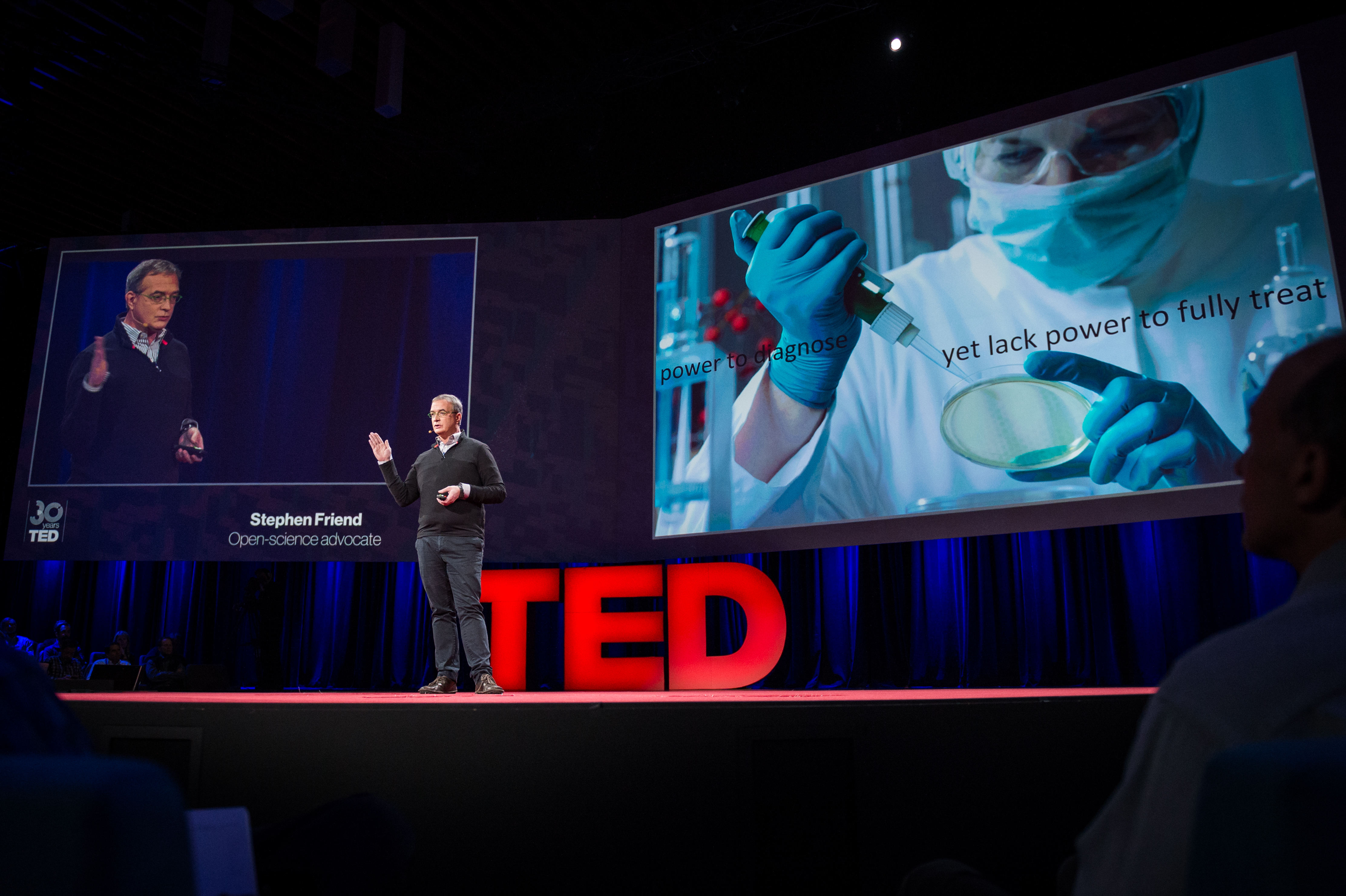Stephen Friend wants your genes — no, really. Today at TED2014 he announced the Resilience Project, a new crowdsourced effort to understand the quirks and patterns of human genetic code that control — and could help treat — genetic diseases.
Thirty years ago, the open-science advocate was working as a pediatric oncologist at the Children’s Hospital in Philadelphia when a man brought in his child for an appointment. “They both had their right eye missing, from a rare form of inherited eye tumor — retinoblastoma — and the father knew he had passed that on to the son,” Friend says. The sense of sadness and hopelessness that he saw in the father, that came with such a diagnosis unsettled and upset Friend, who says, “That moment changed my life.”
He switched his focus and turned to research, being part of the team behind the early discovery of a key cancer susceptibility gene, and also working on the very first cloning of a cancer susceptibility gene. Despite this research, despite living in an age of medical history in which there’s been “a seismic shift in our understanding of what genetic variations are sitting behind various diseases,” Friend says we still have far to go; the development of treatments for genetic disorders has not matched the speed of knowledge about the diseases.
If you ask, “‘Has [new research] impacted how we’ve been able to develop drugs?’ The answer is not really,” Friend says. “It’s as if we have the power to diagnose yet not the power to fully treat.”
How could more therapies, more drugs, better treatment be developed? Through a shift in focus, Friend says. “We do a lot of studying of those who are sick,” he says, “but maybe if what we’re trying to do is develop therapies for prevention … maybe we should be studying those who don’t get sick — who are well.”
Friend is searching for a very particular type of healthy person, however, those he calls unexpected strong heroes — people who carry the genetic code for a particular inherited, childhood disease, yet reach adulthood without ever developing it. Perhaps, Friend proposes, these strong heroes are carrying special mutations that are protecting them from disease. “The vast majority of [healthy] people are not carrying genetic risks,” he says, “but are there a few sets of individuals who are walking around with the risk that would cause a disease and yet something hidden within them is keeping them from exhibiting those symptoms?”
No matter the effort, it’s worth it to search for these people, Friend says. And that’s what he and his team plan to do with the Resilience Project. “Let us look at adults who are over 40 years of age,” he says, “with a family history of disease, maybe, and let’s go and screen them to find those who carry genes for childhood diseases — in hopes of finding those special strong heroes who somehow have avoided inherited childhood diseases.” Friend and his colleagues aim to analyze the genetic material of one million people all over the world — gathering data from different populations, in different environmental settings, with different histories.
With enough information, the Resilience Project could possibly discover the “genetic decoder ring” to understanding and preventing genetic disorders, Friend suggests. Data is key. So, as one of the Resilience Project’s partners said, “Let’s work on this in an open, crowd-sourced way to do this decoding.” All they need to start to lock in the pieces of a genetic decoder ring is “information and [people] with a willingness to say, ‘What’s inside me?’”
And here at TED, the search begins — with a request and a swab kit.

Comments (1)
Pingback: Stephen Friend at TED 2014 | Sage Bionetworks - Converting Anecdotes Into Signals